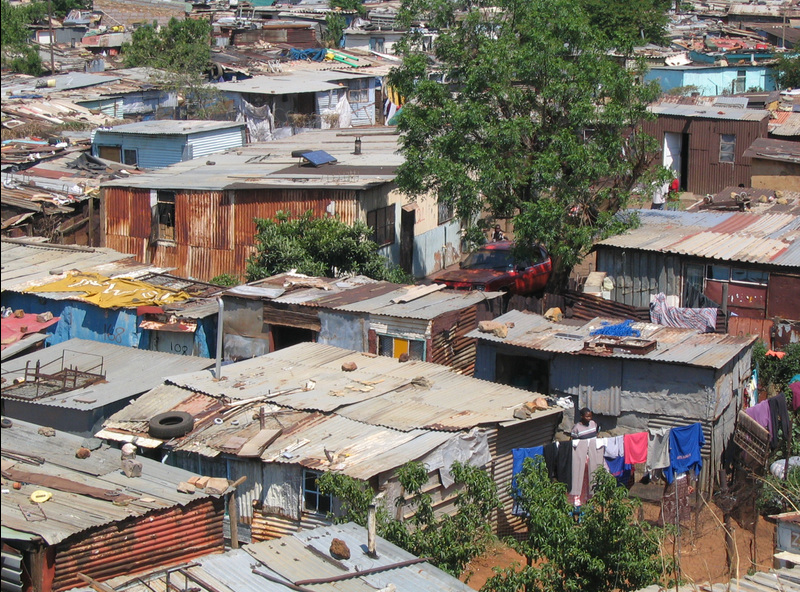Promises no longer enough Mr President
15 August 2018 | Story Misheck Mutize. Photo Matt-80, Wikipedia Commons. Read time 6 min.
South Africa’s president, Cyril Ramaphosa, has made another impassioned promise to fix the country’s ailing economy, this time around with an official word from his party, the ruling African National Congress (ANC).
In a recent statement Ramaphosa noted:
Our economy is facing serious challenges. The recently released figures on unemployment are worrying. Given this economic environment, the (ANC) Lekgotla directed government to move with urgency to develop and implement a stimulus package to ignite economic growth that will lead to the creation of jobs, especially for young people and women.
He added that this stimulus package should focus on rural communities and townships. And that it will be based on existing budgetary resources and efforts to generate new investments.
If anything, the statement demonstrates that Ramaphosa appreciates the gravity of a situation that’s becoming more desperate by the day in ways that threaten the political stability of the country. The unemployed and poor are getting more impatient with the promises for a better future that never materialise.
The key issue is joblessness which stands at 27.2%, (6.1 million people). If discouraged job seekers are included in the numbers, the unemployment rate is closer to the 40% which translates to 9.6 million people. Youth unemployment is particularly alarming. It has risen to more than 50%.
Clearly an urgent intervention is required.
But it’s becoming increasingly difficult to take the ANC seriously when it talks about economic reform. And it’s hard to judge just yet whether Ramaphosa’s latest statement is simply another to add to a pile of empty economic promises made by the ANC in recent years. Even Ramaphosa has made some bold promises over the past six months that have yet to bear fruit.
Ramaphosa will need to move at great speed and take drastic measures to convince the market that he’s serious, and that he’s capable of taking action. This has to involve going beyond a simple stimulus package by tackling some of the country’s more intractable problems. Top of this list is the huge burden of state owned enterprises and wrestling down monopolies in key sectors such as telecoms and the banking sector.
Economic growth
It has been long established that the South African economy needs to grow at levels above 6% to significantly affect its challenges of poverty, high unemployment and inequality. But it’s performed dismally against this target over the past 25 years.
The country’s economy has been struggling to pick up significant positive growth ever since it reached its all-time high of 7.6% in the fourth quarter of 1994 under Nelson Mandela’s administration. Since then, growth has been through a series of marginal seasonal fluctuations, with the negative growth sometimes reversing previous positive gains.
The 2008 global recession didn’t help the situation. The following year South Africa’s economy shrank by 6.1% – the largest contraction ever. Since then, the country has reported sluggish economic growth far below the rest of the continent’s average of 3.6%.
This picture says successive governments have failed to tackle the country’s structural economic problems such as the widening inequality, lack of skills, high unemployment, corruption and crime. And none of the country’s administrations since 1994 has taken decisive steps to reform areas like seriously fixing highly indebted and badly run state owned enterprises as well as highly uncompetitive sectors.
Economic growth stimulus package
Ramaphosa’s stimulus package includes:
- increasing investment in public infrastructure,
- increasing support for small and medium business entrepreneurship,
- trade support measures for sectors affected by big import surges,
- localisation of procurement and youth training.
These economic measures all depend on government spending money. But the government would have to increase borrowing if it wants to spend more, something the country can ill afford. The policy is also not likely to ignite growth.
To be effective, other supplementary action needs to be taken to encourage private and public sector spending. This includes monetary measures such as interest rate cuts, as well as fiscal policy initiatives such as tax rebates and export incentives.
But even this won’t be enough. The current economic status needs much bolder steps.
Some of the structural reforms needed
The South African government needs to focus on opening up key economic sectors to more competition. These include sectors like telecommunication, energy, financial services and transport. All are currently dominated by a few players and creating serious economic bottlenecks.
And the Ramaphosa administration needs to sort out state owned enterprises. It must – once and for all – face the reality that it needs to get rid of non-essential state owned enterprises and consider partial privatisation of mainstream state firms. This would reduce the government’s debt burden and give it some financial slack. Those that aren’t sold off or partially privatised must have sustainable funding models to allow the government to reduce the level of debt guarantees.
In addition, Ramaphosa must come up with a credible initiative to support the country’s manufacturing base which is being eroded by imports.
Although it’s necessary to address the land reform issue, Ramaphosa will need to the tackle the uncertainties that come with pursuing a policy of expropriation without compensation. The consideration is viewed by many in the business sector as a threat to property rights. As such it erodes business confidence.
![]() The government should have decisive economic policy rather than just tilting towards a populist direction.
The government should have decisive economic policy rather than just tilting towards a populist direction.
Misheck Mutize, Lecturer of Finance and Doctor of Philosophy Candidate, Graduate School of Business (GSB), University of Cape Town.
 This work is licensed under a Creative Commons Attribution-NoDerivatives 4.0 International License.
This work is licensed under a Creative Commons Attribution-NoDerivatives 4.0 International License.
Please view the republishing articles page for more information.










